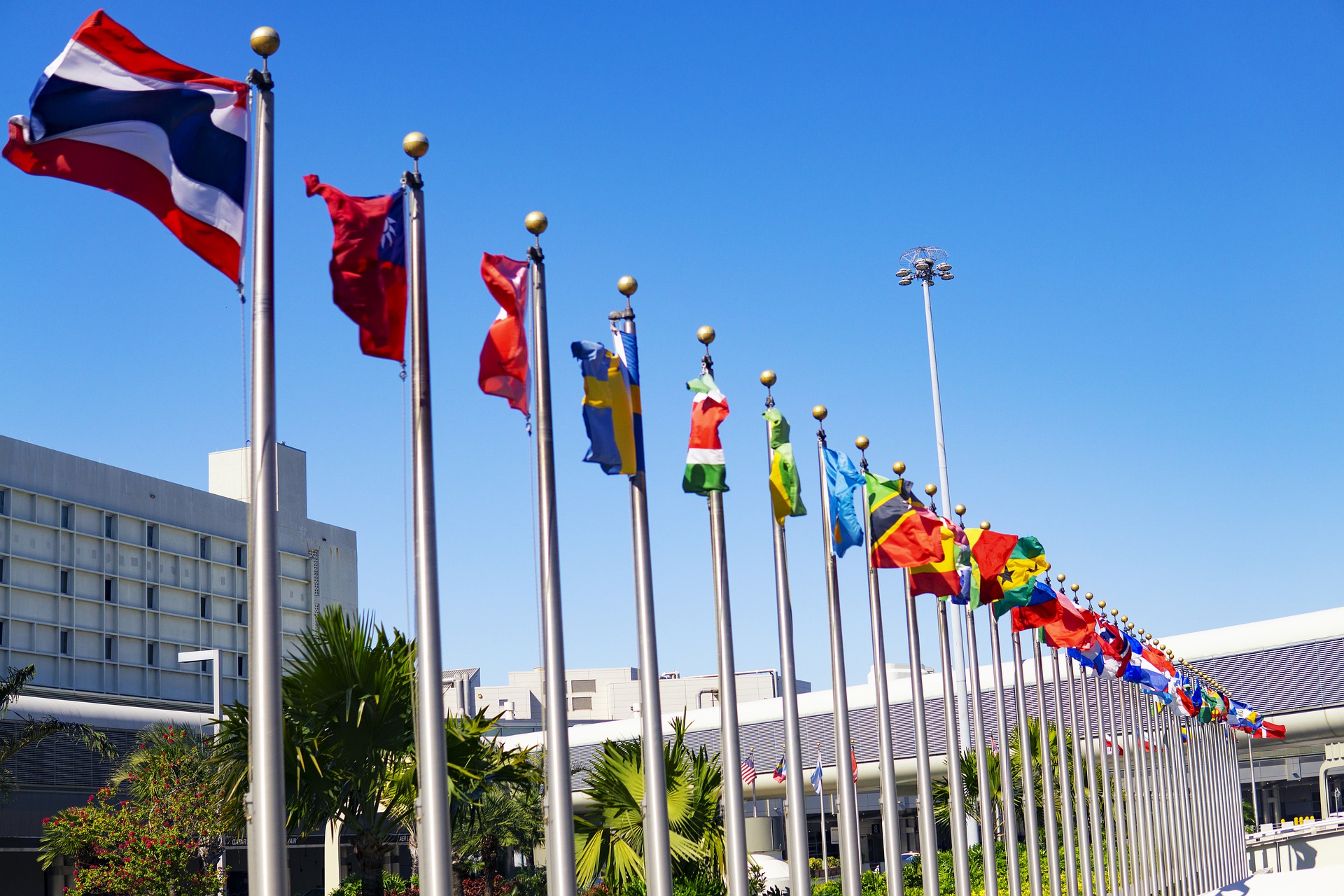From Rio to Stockholm: a look back at 50 years of sustainable development meetings
For fifty years, sustainable development has been central to the “Earth Summits”. These meetings, organised by the United Nations since 1972, are held every 10 years and invite heads of state to meet and agree on a common framework around the priority global themes of the environment, energy, poverty and the economy. In this article, we look back at these international events that have shaped our environmental awareness over time, with the fifth Earth Summit being held in Stockholm in June 2022.
The First Earth Summit in 1972: raising awareness internationally
The environment was taken seriously for the first time at the 1972 Stockholm Earth Summit. This meeting in Sweden – one of the first countries to set up a sustainable development agenda in the 1960s – was a turning point in terms of environmental issues’ importance on the international stage.
Although few concrete actions came out of it, the Stockholm Summit laid the foundations to tackle the ecological crisis, in particular through the creation of the United Nations Environment Programme (UNEP). Leaders then undertook to meet every ten years to review the state of the planet.
In 1982, the second summit was held in Nairobi, Kenya, home of the United Nations Environment Programme (UNEP). With Cold War tensions at their highest, no concrete decisions were made.
The Rio Summit 1992: a historic moment for the climate
It was not until 1992 that the climate and biodiversity were at the heart of discussions between the participating states. The United Nations Conference on Environment and Development (UNCED), also known as the Planet Earth Summit or Rio Conference, took place in Rio de Janeiro, Brazil, from 3 to 14 June 1992. Mobilising leaders to discuss the future of the planet had never been more important, as 178 heads of state and 1,500 non-governmental organisations got involved in the first conference to take place in Brazil.
L’officialisation de l’urgence mondiale
The Rio Declaration was adopted unanimously, advancing the idea that countries have environmental rights and responsibilities. It set out the foundations for sustainable development (a concept that was still new at the time) and highlighted two major concerns which had emerged since the first conference in 1972: environmental degradation and the increasingly evident interdependence between long-term economic progress and the need for environmental protection.
Furthermore, the conference led to the adoption of an ecological action plan for the 21st century, called Agenda 21, aimed at implementing sustainable development at a regional level. Three Rio conventions also came out of the conference:
- The United Nations Framework Convention on Climate Change (UNFCCC), which iterated the need to reduce greenhouse gas emissions, resulting in the signing of the Kyoto Protocol in 1997.
- The International Convention on Biodiversity or Convention on Biological Diversity (CBD), which committed signatory countries to protect the planet’s ecological balance while maintaining economic development.
- The United Nations Convention to Combat Desertification (UNCCD), which required parties to develop national action programmes to address desertification, supported by international cooperation and partnership arrangements.
The Rio Summit also gave rise to the Conference of the Parties (COP), the major meeting of UNFCCC signatory countries addressing climate change.
Jacques Rocher at the Rio Earth Summit
The Yves Rocher brand was one of four French companies invited to the Rio summit in 1992. There, Jacques Rocher, Chairman and Founder of the Yves Rocher Foundation, presented an “Appeal on Behalf of Tropical Rainforests” signed by 300,000 customers.
One day, the borders of my native Brittany widened, and I discovered the Brazilian Amazon. There, I felt the power and great fragility of nature. This adventure has been my calling. Along the way, I met many inspiring people with whom I shared experiences, as well as a passion for nature.
This desire to contribute to environmental efforts has always guided the Yves Rocher Foundation’s work. It was with this in mind that the PlantForLife programme was created, and it has been taking action on a global scale since 2007. In addition to conservation and rewilding actions, nearly 120 million trees have already been planted in 35 countries thanks to the Foundation and partner NGOs on the ground.
After Rio: what progress has been made?
The Johannesburg Summit: raising leaders’ awareness
The Johannesburg Summit (or Rio+10) was held in 2002 when combatting terrorism and US President George W. Bush’s refusal to ratify the Kyoto Protocol dominated the scene. Although it did not represent a significant step forward for sustainable development, the meeting was a chance to renew commitments, focusing on poverty, water and renewable energies. It was at this Earth Summit that French President Jacques Chirac declared: “Our house is burning, and we are looking the other way. Nature – mutilated and overexploited – can no longer recover, yet we refuse to admit it…”. His words symbolised a growing awareness among world leaders.
The Rio+20 Conference: ambition for a green economy
The fourth United Nations Conference on Sustainable Development, Rio+20, marked the 20th anniversary of the Rio Earth Summit and was held in Brazil in June 2012. The green economy was its priority issue at a time when environmental indicators were continuing to sound the alarm, and the rise of industrialised countries was depleting natural resources and – inevitably – biodiversity. The conference concluded with the adoption of the SDGs or Sustainable Development Goals, an agreement that aims to end poverty, protect the planet and ensure a good future for all living things.
Following in this vein, the theme of the Earth Summit held in Sweden on 2 and 3 June 2022 was “Stockholm+50: a healthy planet for the prosperity of all – our responsibility, our opportunity”. This global event will provide an opportunity for the international community to strengthen cooperation, set out post-COVID-19 sustainable recovery plans and accelerate action outlined in the Rio Declaration 50 years ago.



